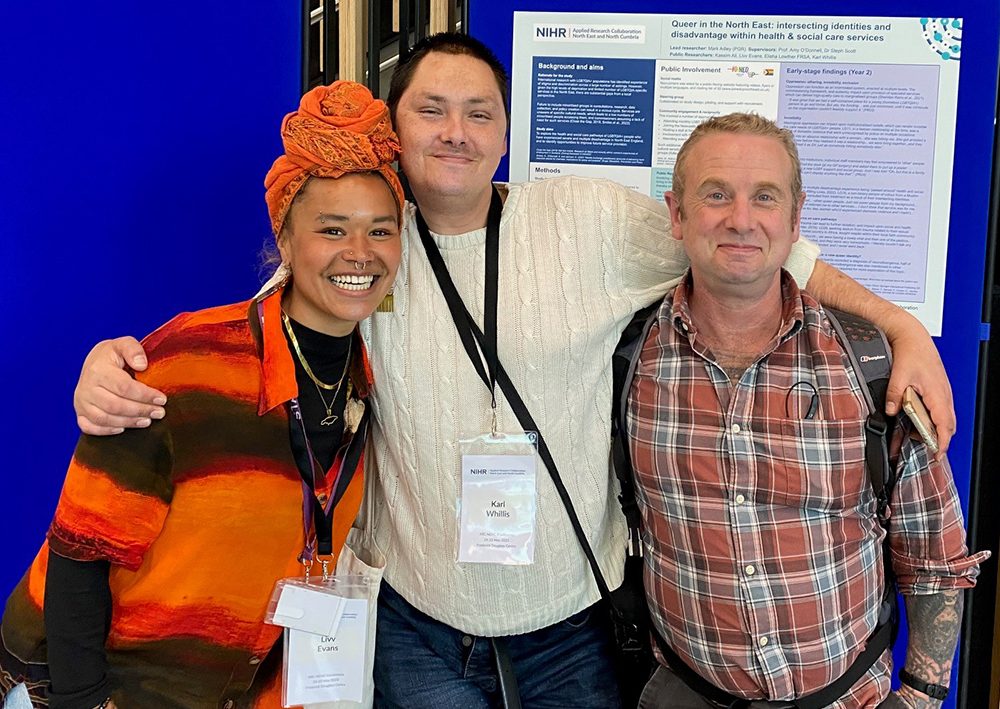Reflections from a researcher: Engaging with communities that are infrequently heard in research
Blog

Community groups frequently say that researchers come and ask lots of questions and ‘take’ what they need from communities and individuals without giving back. Although we need to consider issues around financial remuneration (following NIHR National Guidance) sometimes communities want something in-kind rather than financial recompense.
I’m pleased to have been able to find a way of ‘repaying’ the community groups I am working with by doing some volunteering with them, which has also helped me to develop genuine relationships and rapport with those people.
I think for me this comes back to consideration of some of the reasons why marginalised groups may be marginalised, and their experiences of systemic oppression, exclusion, stigma, or othering. Systems have been built that have not involved them in their design, and that by their very design serve to exclude them. And now we come along and ask people about their experiences of being excluded! Therefore, we can perhaps understand people’s reluctance to contribute to projects that may appear (initially, at least) to be part of the very systems that have pushed them into the margins.
Moving towards, and reaching into these multiply excluded populations therefore requires additional work and careful consideration of study design. Being an ‘insider’, or having some insider qualities can be very helpful, and for some communities this may even be essential. Certainly, developing genuine relationships, trust, and rapport can be central to the process of reaching groups who may have experienced multiple social exclusion.
Doing this PhD has given me the freedom to develop these relationships. This has involved a good deal of time on evenings and weekends, being involved in other organisations’ steering groups, delivering training, helping out with events, or simply being visible within diverse local communities. While some of this volunteering hasn’t been of direct benefit to my study, people have got to know more about me and the project, and doors have opened that were initially closed. More importantly perhaps, this additional volunteering work has felt like the right thing to do. There are both selfish and altruistic reasons for conducting research, and it can at times be tricky to navigate an ethical path through these.
Carmen Logie’s book, Working with Excluded Populations in HIV challenges researchers working with marginalised populations to take additional steps to move towards such groups. I am aware that I am privileged in this respect, in that I don’t have children or full-time caring duties and therefore have additional time. A full-time PhD, itself a luxury, perhaps also allows for a blue sky approach to study design and implementation that may simply not be available to others. However, justifying such additional labour into initial project designs may be integral to developing relationships with groups who have been multiply stigmatised.
Micro-management would have hampered my ability to do this additional work and to reach into these communities, and I have had nothing but support from Newcastle University and NIHR. My supervisors have trusted me to work creatively and ethically, supported by the institution’s Ethics Committee.
I feel grateful to be conducting this research within a framework of trust and support, in which meaningful involvement with the public and communities is a genuinely valued part of the research process.
Read more about Mark Adley’s PhD research project: Joined Up North East: Exploring support for LGBTQIA+ people in the North East of England